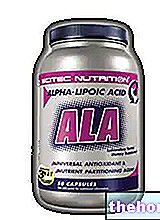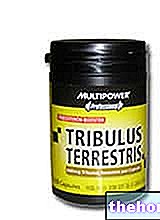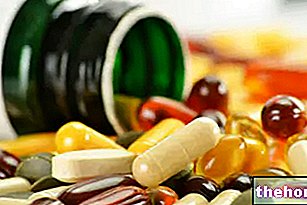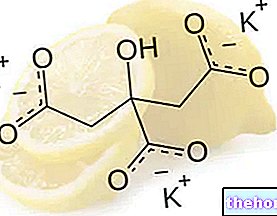What's this
Tryptophan is an essential amino acid for the human body.
Foods rich in Tryptophan
Given our inability to synthesize it on its own, tryptophan must be taken through food; legumes, meats, fish, dairy products and eggs are rich in it.

Need
The daily requirement in adults is estimated at 3-3.5 mg / kg. Given that there are, just to cite a few examples, 560 mg in 100 grams of Parmigiano Reggiano and 240 mg in a hectogram of chicken, the dietary intake of tryptophan is normally higher than the requirement.
Functions
In addition to being a key amino acid in protein synthesis, tryptophan represents the starting point for the synthesis of some biological substances, such as serotonin and niacin.
Serotonin is a substantially excitatory neurotransmitter, synthesized through a metabolic pathway called tryptophan hydroxylase (named after an enzyme involved in this pathway). Also known as the "good mood hormone", serotonin can be converted into melatonin, which is very important in regulating the sleep-wake cycle.
Niacin, better known as vitamin PP, is involved in cellular metabolisms that convert macronutrients into energy; indicatively about 3.3% of the dietary tryptophan is destined for the synthesis of niacin.
Tryptophan supplements
Its use of this amino acid as a supplement is essentially due to its already mentioned role in the synthesis of serotonin.
The levels of tryptophan in the blood are particularly low in people who are lactose intolerant (remember that dairy products are particularly rich in tryptophan) or with fructose absorption disorders.
On the other hand, serotonin levels are often decreased in depressed patients, who are not surprisingly frequently treated with drugs "selective serotonin reabsorption inhibitors" (fluoxetine, sertraline, citalopram, escitalopram, fluvoxamine, paroxetine). to act at the level of cerebral synapses (spaces intended for nerve transmission between two neurons), preventing the normal reuptake and physiological elimination of serotonin (the amount reabsorbed by the presynaptic terminal is processed by monoamine oxidases, which oxidize serotonin, then transformed into 5- acid hydroxyindoloacetic excreted in the urine) Thanks to these active ingredients, the higher levels of serotonin available to the postsynaptic receptors can rebalance the disorders generated by its possible deficiency, such as those associated with obsessive-compulsive disorder or major depression.
The SYNTHESIS OF SEROTONIN from tryptophan involves two different enzymes, called triprofano hydroxylase and amino acid decarboxylase. In the first stage, tryptophan is converted into 5-hydroxytryptophan, thanks to the action of tryptophan-hydroxylase; subsequently, 5-hydroxytryptophan is decarboxylated to serotonin by the amino acid decarboxylase.

- Precursor: the amino acid tryptophan
- conversion to 5-hydroxytryptophan by the tryptophan-hydroxylase enzyme
- 5-hydroxytryptophan is decarboxylated to 5-HT, by the decarboxylase of aromatic amino acids
5-hydroxytryptophan supplements
The limiting factor of this biological process lies in the "activity of the tryptophan hydroxylase enzyme, which is why it is preferred to use the integration not so much of tryptophan itself, but of the product of this enzyme: 5-hydroxytryptophan, present in food in quantity This amino acid derivative, capable of crossing the blood brain barrier, is proposed as an antidepressant, a valid aid against insomnia and anorexisant (inhibitor of appetite, especially the excessive need for sweets).
Although it has proved effective in "increasing the levels of serotonin and melatonin in the body," the use of a supplement based on 5-hydroxytryptophan cannot replace the classic antidepressant or hypnotic therapies, which - even with inevitable side effects - ensure an "effective therapeutic action. The reader is therefore invited NOT to spontaneously replace classic drug therapy with supplements based on 5-hydroxytryptophan, nor to take them together with antidepressant drugs (unless otherwise prescribed).
Furthermore, 5-hydroxytryptophan can be converted to serotonin directly in the liver and this significantly increases the risk of heart valve dysfunction (effect demonstrated in animal models by direct administration of serotonin).
How to use
The recommended intake dosages are 300-1000 mg / day for tryptophan, and 50-100 mg / day for 5-hydroxytryptophan.
















.jpg)











